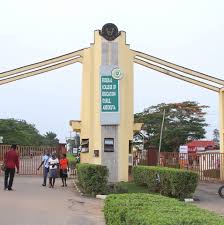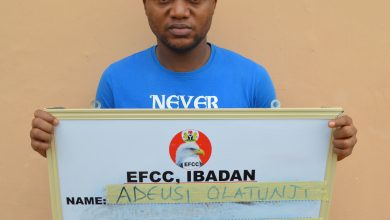
EDUCATIONIST CALLS FOR IMPLEMENTATION OF INCLUSIVE EDUCATION IN ACADEMIC SYSTEM

The Prof also said that inclusive education also encompasses the mainstreaming of traditionally excluded or marginalised groups into the regular school system, by providing to all students with significant disabilities, with needed supplementary aids and support services.
Penpushing further reports that, while speaking on the benefits of Inclusive Education,Ogen said, “inclusion has academic and social benefits for all students, whether with or without disabilities, such as increased communication and social interaction opportunities, more active participation in the school community, individualised education goals as well as access to the rich core curriculum.
“Inclusion recognizes that all students are learners who benefits from a meaningful, challenging, and appropriate curriculum and differentiated instruction techniques that address their strengths and needs.
“Students without disabilities can also benefit from inclusive settings. Earlier studies reveal that academic performance in equal or superior to comparative groups of students educated in a non-inclusive setting, and students with severe disabilities do not significantly limit or interrupt instructional time for their non-disabled peers in inclusive settings.
“Inclusive education leads to better social networking and there is less social tension among disabled children when they placed side by side with other children without disabilities” he emphasized.
The Professor of History, in the lecture also compared inclusive education in African countries, such as Kenya, Zambia, South Africa, Uganda, Tanzania with Nigeria, while it revealed that many children are largely non-inclusive and inaccessible due to disabilities.
“In 2016, it was estimated that about 7 million children were out of school in Nigeria mainly because of their disabilities. This unpleasant phenomenon is largely due to the fact that the design and management of primary and secondary schools in Nigeria are still largely non-inclusive and inaccessible to children with disabilities” he argued.
Penpushing also reports that, on the challenges of Inclusive Education in Nigeria, Ogen, said that, inadequate funding, negative attitude or stereotyping, lack of qualified personnel, accessibility, curriculum review and cooperation, are major factors facing the inclusive education in Nigeria.
The guest lecturer said that among ways to also make inclusive education move forward in Nigeria, is helping teachers to understand their role in inclusive education, developing ways of assessing the impact of inclusive and quality education.
Penpushing reports that, among dignitaries present at the lecture were; NCCE Executive Secretary, Prof Bappa-Aliyu Muhammad, representing the Minister of Education, Adamu Adamu, Provost, FCE (Technical), Dr Azeez Ademola, Provost, FCE (Special), Prof. Usman Kamoru, Olu of Osiele, Oba Williams Olowonyo, Chairman, Governing Council, FCE Abeokuta, Mrs Grace Olufunke Fabode.





